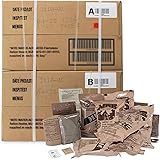Understand Your Flood Zone Risk
Assessing Your Home’s Flood Risk
First things first, you gotta know where you live. Understanding whether your home is in a flood zone is absolutely critical. Check out the FEMA flood maps for your area. These maps can give you all the juicy details about whether your home is at high, moderate, or low risk. Trust me, this knowledge is power when it comes to flood protection.
Once you’ve checked the maps, you should also consider local history. Has your neighborhood seen significant flooding in the past? Sometimes, even homes outside of flood zones can get impacted. Ask your neighbors, check social media groups, and see what stories pop up. You’ll thank yourself later.
Finally, don’t forget to reevaluate your risk every few years, especially if your area has undergone any construction or developments. Rain patterns can change, and it’s better to be proactive than reactive when it comes to protecting your home.
Consulting Local Floodplain Managers
Sometimes, it’s best to leave it to the pros. Local floodplain managers know your area’s ins and outs when it comes to flooding. They can provide insights that maps won’t tell you. I remember calling mine for advice, and they were super helpful in pointing out potential risks I hadn’t really considered.
They can also inform you about any upcoming zoning laws or regulations that might affect your property. Plus, they’ve usually got connections to local organizations that can help with preparedness. Knowledge networking, if you will!
Don’t be shy! Make that phone call or set up a meeting. Understand that you’re not alone in this; there are people out there who care about making your home safer.
Stay Updated on Weather Conditions
In this day and age, staying informed is easier than ever. I like to use weather apps and alerts to keep myself updated on potential weather threats. Sometimes, you can see a storm brewing a few days in advance, and you want to be prepared for anything that might come your way.
It’s also a fab idea to follow your local news stations on social media. They often post updates that can give you a heads-up on urgent conditions or advisories. Having that information at your fingertips can make all the difference when it comes to protecting your home.
== > What if ... Get a FREE Subscription to PREPARE
Lastly, don’t forget about community resources! There might be neighborhood watch groups or community boards where people share firsthand info about flooding. Make it a habit to interact and share info; you’ll get to know your community better while staying safe!
Elevate Your Home Where Possible
Understanding Home Elevation
Okay, let’s talk elevation. Literally. If you’re in an area prone to flooding, elevating your home can give you a serious advantage. I remember when my buddy decided to elevate his home after some heavy rains, and it saved him a ton of grief down the line.
The National Flood Insurance Program often mandates raising homes above base flood elevation, so it’s best to consult someone who knows the ropes when considering renovations. It might feel like a huge undertaking, but the peace of mind is worth it.
Plus, elevated homes tend to have lower insurance premiums. So, it’s like killing two birds with one stone! Just think about how much time and stress you’ll save by being proactive instead of reactive when the rains come pouring down.
Install Sump Pumps
Sump pumps are like your home’s superhero when it comes to fighting off flood damage. I remember installing one in my basement and feeling a wave of relief wash over me. If water starts to accumulate, these devices kick into gear and pump it out before it becomes a bigger issue.
Make sure to research battery backup options for your sump pump. Power outages during a flooding event are all too common, and the last thing you want is for your pump to fail when you need it most!
And don’t forget about regular maintenance. I can’t stress enough how important it is to check your sump pump at least once a year. If it doesn’t work when you need it, that could be a costly oversight.
Landscape for Drainage
Believe it or not, the way you landscape your yard can affect how water flows around your home. Sloping away from the foundation is key to keeping water where it belongs. I learned this the hard way after a bad landscaping job left water pooling by my back door!
Get Preparedness and Self-Reliance Tips. Subscribe Now!
Using retaining walls, trenches, and proper grading can also keep your yard from becoming a lake. Sometimes small changes can make a big impact, so don’t hesitate to talk to a landscaping professional about flood mitigation options.
Flowers and plants also help! Native plants with deep roots can absorb more water, acting like nature’s own sponge to absorb rainfall. So while you’re beautifying your space, you’re also protecting your home! Win-win!
Invest in Flood Insurance
Understanding Flood Insurance Policies
Look, let’s be real here; floods happen, and unless you’re living under a rock, you need to think about flood insurance. It’s like a safety net for your home. I recommend getting familiar with what the National Flood Insurance Program covers, so you know what you’re getting into.
There’s a ton of jargon out there—waiting periods, deductibles, what’s covered or not. Take the time to read your policy. I once had a friend who thought they were covered for everything and ended up with a nasty surprise when the floods hit.
Also, keep an eye on renewal costs and check for available discounts. Some insurers offer lower rates if you’ve taken floodproofing measures like elevating your home or installing flood-resistant materials. It’s worth a little bit of research, trust me!
File Claims Properly
If disaster strikes, knowing how to file a flood insurance claim can save you tons of hassle. The claims process can be complicated, and I learned the hard way that documentation is everything. So keep records of everything—photos of your home, receipts, and a detailed list of damages.
Never wait too long to file a claim. There are often deadlines, and you want to make sure you’re within that window. Quick action can lead to quicker payouts, which is crucial in getting your home back together.
Lastly, don’t hesitate to reach out for assistance if you’re feeling overwhelmed. Many organizations and local agencies provide resources for navigating through the messy claims process. Don’t go at it alone!
Annual Policy Review
Your flood insurance policy isn’t a one-and-done situation. It’s essential to review it annually. Life changes, and so should your coverage. I remember my first policy didn’t cover renovations I made to my home, and it was an expensive mistake!
Look at any updates in your home that might need coverage adjustments. Whether you’ve added a new room or made significant repairs, all of these changes matter for your insurance policy. A friendly chat with your insurance agent can clarify everything.
And don’t forget to look for new discounts or features your insurer might offer. Staying proactive might save you some cash in the long run!
FAQs
1. Why is it important to assess my home’s flood risk?
It’s crucial because understanding your flood risk allows you to better prepare your home and take necessary precautions to minimize potential damage. Knowing your risk can empower you to invest in proper insurance and protective measures.
2. How can elevating my home help in flood prevention?
Elevating your home raises it above the base flood elevation, protecting it from floodwaters. This minimizes the risk of water damage and can lower your insurance premiums in the long run.
3. What are the benefits of installing a sump pump?
Sump pumps can help remove unwanted water from your basement, reducing the risk of flooding. They act quickly to pump out water that accumulates during rainstorms, and battery backups ensure they work even during power outages.
4. Is flood insurance necessary even if I live in a low-risk zone?
Absolutely! Floods can happen anywhere, and many homeowners discover this the hard way. Having flood insurance provides peace of mind and financial protection against unexpected events.
5. How often should I review my flood insurance policy?
I recommend reviewing your flood insurance policy annually. Life changes, home renovations, and market conditions can all affect your coverage needs. Regularly updating your policy ensures you have the correct coverage in place.






